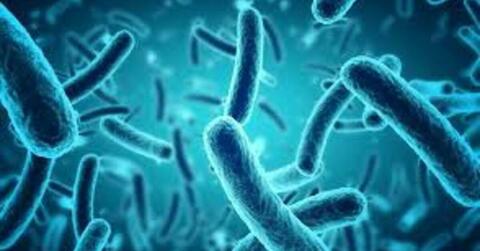By: Richard L. Smith
As part of an ongoing investigation by the New Jersey Department of Health (NJDOH) into Legionnaires’ disease among residents in Mercer County in areas served by Trenton Water Works (TWW), seven cases of Legionnaires’ disease have been reported between October 2022 and March 2023.
According to a statement released by The NJDOH, the seven cases occurred in Trenton, Ewing Township, Lawrence Township, and Hamilton Township. Of the seven, two individuals have died.
Health officials from NJDOH said they briefed elected representatives at the local and State level on this matter and will continue collaborating with them throughout this ongoing investigation.
NJDOH continues to urge all residents and building owners who receive water from TWW to follow the recommendations outlined below to reduce the risk of Legionella growth, the bacteria that causes Legionnaires’ disease, in their household and building premise plumbing.
Residents who do not know their water utility company can check their water bills; renters can ask their property owners.
While it remains rare for a healthy person who is exposed to Legionella to become sick with Legionnaires’ disease, people who are 50 years or older, especially those who smoke, or those with certain medical conditions, including weakened immune systems, chronic lung disease or other chronic health conditions, are at increased risk.
Officials said it is unknown if individuals with Legionella detected in their homes are more likely to develop Legionnaires’ disease.

Legionnaires’ disease is a type of pneumonia (lung infection) that people can get after breathing in aerosolized water (tiny droplets of water in the air) containing Legionella bacteria. People cannot get Legionnaires’ disease by drinking water that has Legionella.
Less commonly, people can get sick when water containing Legionella is aspirated into the lungs while drinking (“goes down the wrong pipe”).
Symptoms of Legionnaires’ disease include cough, shortness of breath, fever, muscle aches, and headaches, similar to symptoms caused by other respiratory infections, including COVID-19. Legionnaires’ disease can be fatal but is treatable with antibiotics.
It is essential for anyone who thinks they have symptoms of Legionnaires’ disease to contact their healthcare provider and seek medical evaluation immediately.
Health officials continue to urge healthcare providers to collect lower respiratory specimens for Legionella PCR and/or culture, using the urinary antigen test, when suspecting Legionnaires’ disease. This is especially important among residents who receive water from TWW.
The urinary antigen test is the most common diagnostic method but can only detect Legionella pneumophila serogroup 1. PCR and culture of lower respiratory specimens can detect all Legionella species and serogroups.
NJDOH continues to partner with the New Jersey Department of Environmental Protection (NJDEP) and the affected local health departments to investigate factors that may be promoting the growth of Legionella bacteria and evaluate remedial actions that can be taken to improve water quality and reduce Legionella in the water system.

